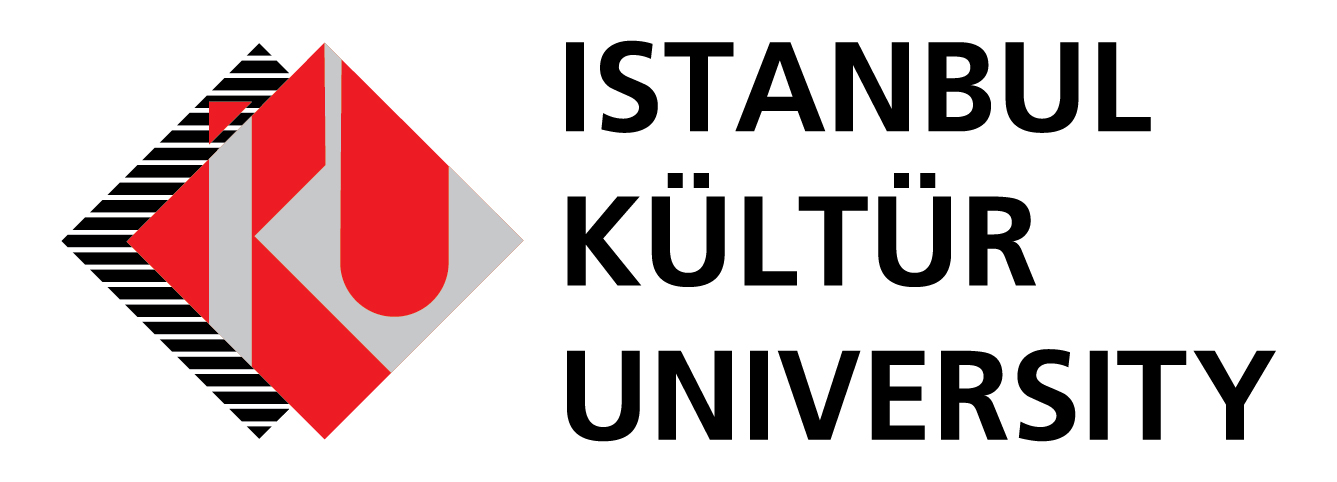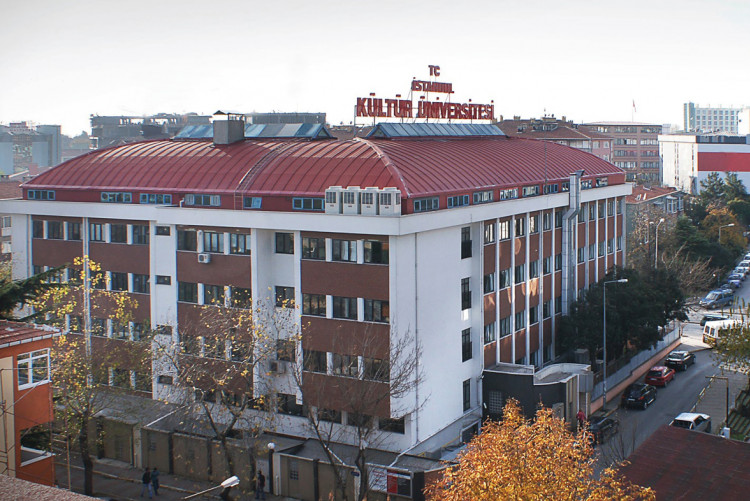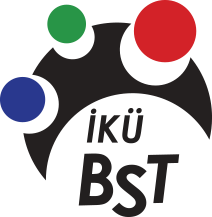Istanbul Kultur University Vocational School (MYO) defined the methods of digitalization in vocational education and enriched its application areas.
Istanbul Kultur University Vocational School, which started out from the need for individuals equipped with intellectual skills such as analytical and creative thinking and problem solving, as well as up-to-date technical knowledge and skills, as a result of the digitalization process that gained momentum during the pandemic period, reaching serious dimensions in the field of education and the combination of technologies with production automation, defined the methods of digitalization in vocational education and enriched its application areas.
Taking pioneering steps to create new professions in the defined digital education methods, to harmonize and maintain existing professions and to train the sought-after human resources to meet the demands, IKU Vocational School is carrying out studies aimed at expectations with its hybrid classes.
Digital Leadership in the Vocational Education
Vocational School has implemented the "Hybrid" classes created with the IKU infrastructure. The hybrid education model, which means the application of online and face-to-face education model together, allows students to participate in classes interactively whenever and wherever they want, with its blended learning and web-based teaching opportunities.
IKU Vocational School Director and Digital Vocational Education Officer Assist. prof. Sinan Kesici defined the unique “IKU-MYO Digital Vocational Education” method and shared information about the practices made by the sub-working groups at the meeting where the activities of the Digital Vocational Training Method Working Groups were explained.
Speaking at the meeting, Assist. Prof. Sinan Kesici, talked about the studies conducted in sunjects such as, “IKU MEAGEM-Vocational Education Research and Development Center”, “Vocational Education in the Workplace”, “Vocational Qualifications Authority”, “Vocational Vocational Education Methods Digital Vocational Education Method Curriculum Studies”, “2021 Spring Term Vocational School Education - Training Implementation Principles”, “Vocational Vocational School Manager - Reverse Mentor Practices and Student Representative Meetings” and “Newly Published Applied Training Framework Regulation.”
Assist. Prof. Kesici stated that training a qualified workforce that meets the needs of the digitalized world with the "Digital Vocational Training Method" is their primary goal. Assist. Prof. Sinan Kesici said that since the first days of the Covid-19 pandemic, his students, who have been continuing their online classes with the distance education platform CATS (Computer Aided Training & Educational Services), have continued their studies to move their digital education processes to a higher segment without slowing down, and continued his speech as follows:
“Within the scope of our Blended Learning (blended, hybrid-blended education) model, which is integrated through CATS, the corporate digital education solution that our university has been using for 11 years, we create an effective synergy in our classrooms by providing strong communication with our students who attend classes simultaneously both physically and online. We consider digital education multidimensional with our vocational trainings. We have created a visionary vocational training method with our technological infrastructure by bringing together the knowledge and experience of our strong academic staff. We offer the vocational education that students can choose according to their competencies in an original and alternative concept in order to be applied during and after the pandemic process. Based on our academic perspective, which reinforces conceptual theories in practice in practice, and our research and observations, we have defined our "Digital Vocational Training Method" within the expectations and opinions of our students. We determine new programs suitable for Digital Vocational Education according to sector demands. Considering the expectations of our students, we actively use the digital education tools on CATS with our student-centered education approach. While preparing our students for the future, who fulfill the digital requirements of today's world, we closely follow the trends and latest developments. Not only the learning processes of the students, but also their motivation, socialization and peer communication are very important for us. In our lessons, we support students' learning processes with gamification, e-portfolio, transparency in measurement and evaluation (rubric scaling), in-class instant communication, interactive content applications and integrations.”
“IKU-MEAGEM Vocational Education Research and Development Center” is Established
“IKU MEAGEM-Vocational Education Research and Development Center” comes first among the studies carried out within the scope of Istanbul Kultur University Vocational School Digital Vocational Education method. Istanbul Kultur University Vocational School offers a sustainable and inclusive education formation to students who have the competencies to manage and direct technology in an environment of university, private sector, NGO and public cooperation.
Assist. Prof. Sinan Kesici said: “Within the framework of applied education types, we continue to work on subjects such as the scope and processes of vocational training, internship and applied courses, ECTS credits, measurement-evaluation criteria and integrating up-to-date information in the sector into our education system. Hybrid education comes to the fore in the pandemic process within the scope of eliminating learning losses, improving hand skills of our students and gaining competence, especially based on the question of how to provide increased skill in vocational education in applied courses. Our most important goal here; to train graduates not only as a preferred intermediate staff, but also as an experienced and qualified employee of the desired quality. Concepts such as the learning management system, course design, assessment and evaluation, digital data and ethics, new educational roles, digital competencies and skills, digital transformation, social equality, anxiety and empathy pedagogy appear as common problems that many institutions need to solve in the new normal. These problems will be overcome when solutions that are grounded, meet expectations, and take correct and appropriate decisions are produced, and when action is taken, it will be observed that the satisfaction of learners and teachers in institutions is at a high level. The satisfaction of our students and academics is our biggest motivation in this challenging process.”
Assist. Prof. Sinan Kesici: “The Current Curriculum Meeting the Expectations of the Future and the New Generation with the Digital Vocational Training Method of IKU Vocational School”
The increasing trend towards digitalization made it necessary to adapt the educational content in universities accordingly. The acceleration of digitalization brought new needs in the sector. For this reason, our students studying at our Vocational School must respond to these emerging needs. This can be possible with the presentation of courses that include technology-based applications in the curriculum, which foresees the future and produces solutions by understanding the needs of the new generation. It is the priority of our digital/online courses in this sense to make students aware of the methods on how to reach the knowledge and skills they can achieve. At IKU Vocational School, our academic staff aims to train students in accordance with the expectations according to the innovations and changing dynamics in the relevant sectors. In our programs, a pool of common/elective courses including courses such as Digital Literacy, Coding, Robotics, Game Programming, Cyber Security Fundamentals, Blockchain, Fintech, Martech, and Digital Branding has been created and the student is given the opportunity to choose the courses they want according to their interests. The use of game thinking and game mechanics in the field of education is also of great importance in terms of motivation of students. The basic concepts and practices of the departments are conveyed to our students through gamification.
A New Governance Approach with Active Participation and Interactive Reverse Mentor Practice of Student Representatives
Assist. Prof. Sinan Kesici stated that they established a unit responsible for Student Representatives at Istanbul Kultur University Vocational School in order to respond quickly to students' questions, evaluate their suggestions and meet their expectations. Assist. Prof. Kesici stated that with this unit, instant, fast and effective communication was established with students during the pandemic process, and the formation of an atmosphere of anxiety was prevented, especially during course registrations and exam periods.
Assist. Prof. Sinan Kesici said: “One of the reasons for our high student satisfaction is that students' suggestions and opinions are included in our management approach as a result of the continuous and effective communication we establish with our students. The concept of “governance” forms the basis of the administrative approach adopted in our Vocational School administration. With the participation of all our stakeholders, the implementation results of our management decisions, based on the axis of polyphony where different ideas are discussed, are also reflected in our student satisfaction. As a result, we see that the reverse mentoring practice that we have implemented with the pandemic period is effective. The team we formed under the coordination of Assist. Prof. Sinan Kesici includes the ideas and evaluations of our students, who were selected as a result of their suggestions and merit, in the decisions to be taken. In this way, we learn the expectations of our students in various subjects and make them applicable, so that the process works in a more effective and dynamic structure.”
Digital Vocational Training Supported with Eye-opening E-Seminars
Assist Prof Sinan Kesici said, “As IKU Vocational School, we have carried out many activities in different fields for our students online, with the understanding of supporting student development both in theory and in practice, within the scope of digital vocational education. Our Vocational School, which includes aviation, business administration, media and design, health and technical programs, allowed our students to realize their own competencies with interactive e-seminars on various subjects. Our volunteer students, who have different skills from the organizing process to the moderator, took an active role in the tasks suitable for them.
In the e-seminars, where many topics such as , digital marketing, fintech (financial technologies), martech (marketing technologies), adtech (advertising technologies), programmatic, big data, cyber security, digital education methods, blockchain, cryptocurrencies, crisis and risk management in the banking and finance sector, cyber security, digital education methods, blockchain, cryptocurrencies, crisis and risk management in the banking and finance sector, golden rules of investment in the stock market, corporate finance, digital applications in banking, sustainability, corporate social responsibility, logistics, air conditioning and cooling technologies, career planning were covered, our students were informed about current developments and practices in the sectors they are interested in. In the webinar series "Job Belongs to Knower of it: Models of Entrepreneurship" organized by İKÜ Vocational School, the entrepreneurial spirit is instilled in our students; Inspired by the stories of successful entrepreneurs in different fields, we prepare our students for today's business world based on competition and knowledge created by the impact of changing and developing technology.”
Pointing out that there are many studies on a positive relationship between entrepreneurship education and entrepreneurial activities, Assist. Prof. Sinan Kesici stated that one of the most important factors in the development of entrepreneurship is the dissemination of the trainings on this subject and the development of the entrepreneurial characteristics of the students and added: "Within the scope of IKU Vocational School Digital Vocational Education, In the e-seminars we held during the pandemic process, our students have the opportunity to meet with industry veterans. In these events, the advice of experts and experienced people inspires our students to draw a roadmap in their career journey.
In addition to sector-based online events, IKU Vocational School, based on the concept of "People First", also organized an e-workshop series with the theme of culture and art, which is a requirement of modernization. The " Yeniden Düşl(e)-Workshop Series", which was held online by famous artists and writers, with high participation and great interest, allowed students to carry their understanding of culture, art and humor to different perspectives and to develop their creative thinking skills.
Istanbul Kultur University Vocational School academicians, who advocate student orientation and shape their activities in this direction, and students often come together online, in addition to classes, and have a fun and enjoyable time. Many motivational activities, such as games, tournaments, competitions, celebrations, parties, debates, movie screenings, interviews & conversations, which provide one-to-one contact with students, are also held in digital environments.
Istanbul Kultur University Vocational School continues to bring together industry veterans with its students in order to reinforce what is learned in the lessons in the digital vocational education process, to provide networking and socialization, with the mission of raising qualified human resources and closing the workforce gap needed by different sectors. There is also the opportunity to participate from outside the institution in the activities that attract great attention from social stakeholders outside the university.”


